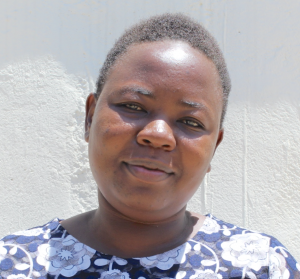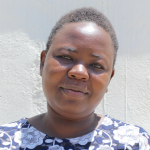Eshilibo Primary School started in 2011. It currently has a student enrollment of 271 and employs seven teachers and two support staff.
A normal day at Eshilibo Primary School begins at 6am, when pupils start arriving with backpack and jerrycan in hand. Students start with cleaning chores in preparation of morning assembly when announcements are made and the Kenyan flag is raised. Normal classes go from 8am to 4:30pm.
Most of the families living around the area are farmers who grow sugarcane to sell to the nearby sugar factories. After they have seen their children off to school, women continue with their domestic chores while men head straight to their farms.
Water
The school doesn't have a water source, and must ask that students bring their own water with them every morning. Since students are coming from different villages, there's no way to ascertain whether the water they find is from a clean or dirty water source. There's a mix of different springs and open water sources that students can choose from, and they often stop by the most convenient spring on the way to school.
There aren't many options for storage, so water's often left in the same small containers that the students carried. The school kitchen uses some of the water to cook lunch, a little is used for cleaning, and the rest is saved for drinking. Waterborne diseases and resulting absences are a constant reality. Headteacher Irene Mwani said, "These water-related diseases have resulted in a high rate of absenteeism, which has affected the pupils' performance."
Sanitation
There are a total of five pit latrines, all of which are filthy, smelly, and lack privacy. Two are for the boys and three are for the girls. There are no hand-washing stations for students to use. Girls often bring their own water containers to the latrines to rinse their hands after. While it's good to see they're motivated to keep clean, it's dangerous that they're using the same container for both drinking and cleaning.
Headteacher Mwani said, "The students line up during break. Others can't wait and even use the area behind the latrines, thus affecting our environmental hygiene."
Here's what we're going to do about it:
Training
Training will be held for two days. The facilitator will use PHAST (participatory hygiene and sanitation transformation), ABCD (asset-based community development), CTC (child to child), lectures, group discussions, and handouts to teach health topics and ways to promote good practices within the school. The CTC method will prepare students to lead other students into healthy habits, as well as kickstart a CTC club for the school.
Hand-Washing Stations
The CTC club will oversee the new facilities, such as hand-washing stations, and make sure they are kept clean and in working condition. The two hand-washing stations will be delivered to the school, and the club will fill them with water on a daily basis and make sure there is always a cleaning agent such as soap or ash.
VIP Latrines
Two triple-door latrines will be constructed with local materials that the school will help gather. Three doors will serve the girls while the other three serve the boys. And with a new source of water on school grounds, students and staff should have enough to keep these new latrines clean.
Rainwater Catchment Tank
A 50,000-liter rainwater catchment tank will help alleviate the water crisis at this school. The school will also help gather the needed materials such as sand, rocks, and water from the spring for mixing cement. Once finished, this tank can begin catching rainfall that will be used by the school’s students and staff. Students will no longer be responsible to find enough water to carry to school every day, nor leave class again to find more.
We and the school strongly believe that with this assistance, standards will significantly improve. With clean water and high standards of cleanliness, students’ good health will give them the chance to earn better grades and live a better life.
This project is a part of our shared program with Western Water And Sanitation Forum (WEWASAFO). Our team is pleased to provide the reports for this project (formatted and edited for readability) thanks to the hard work of our friends in Kenya.

 Rainwater Catchment
Rainwater Catchment
 Rehabilitation Project
Rehabilitation Project





































